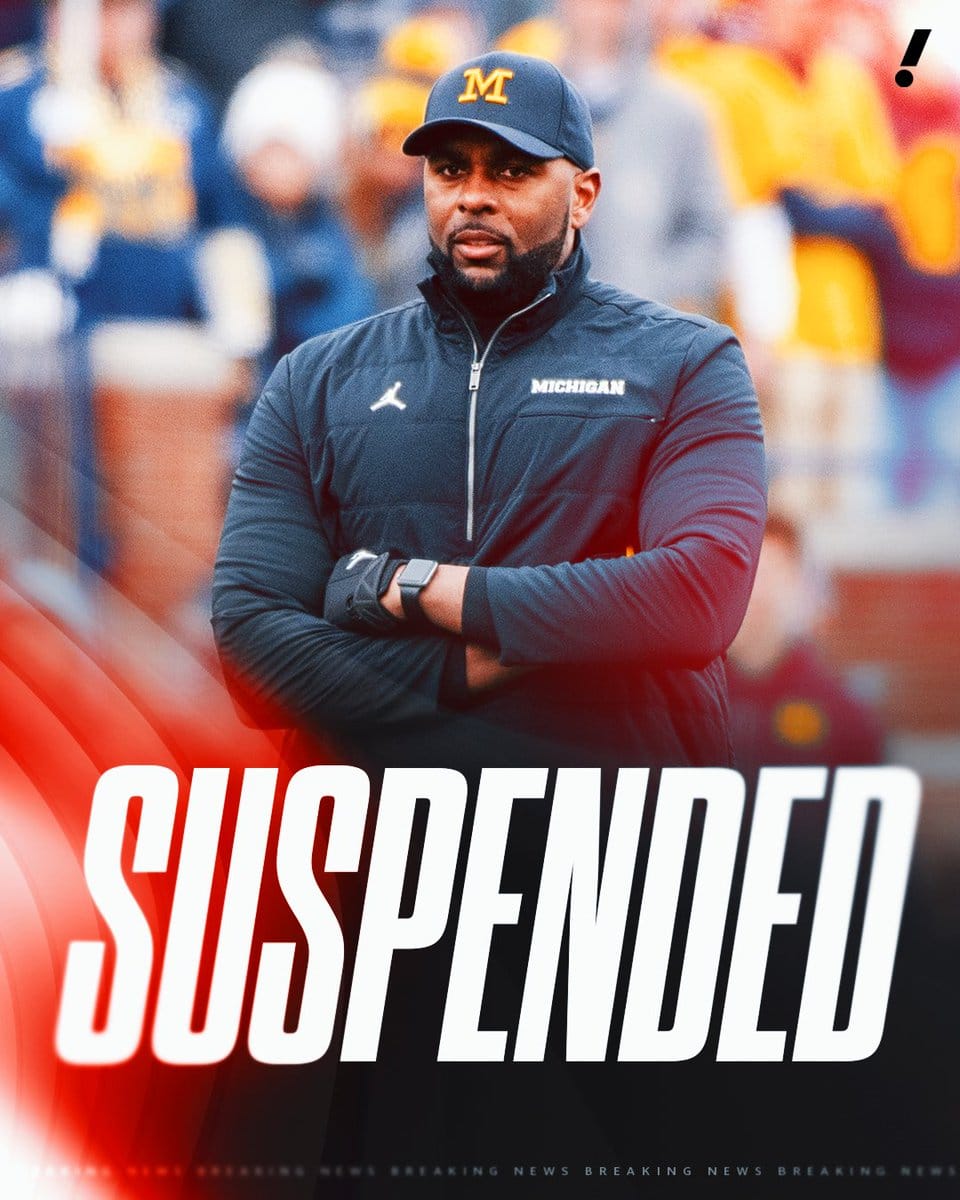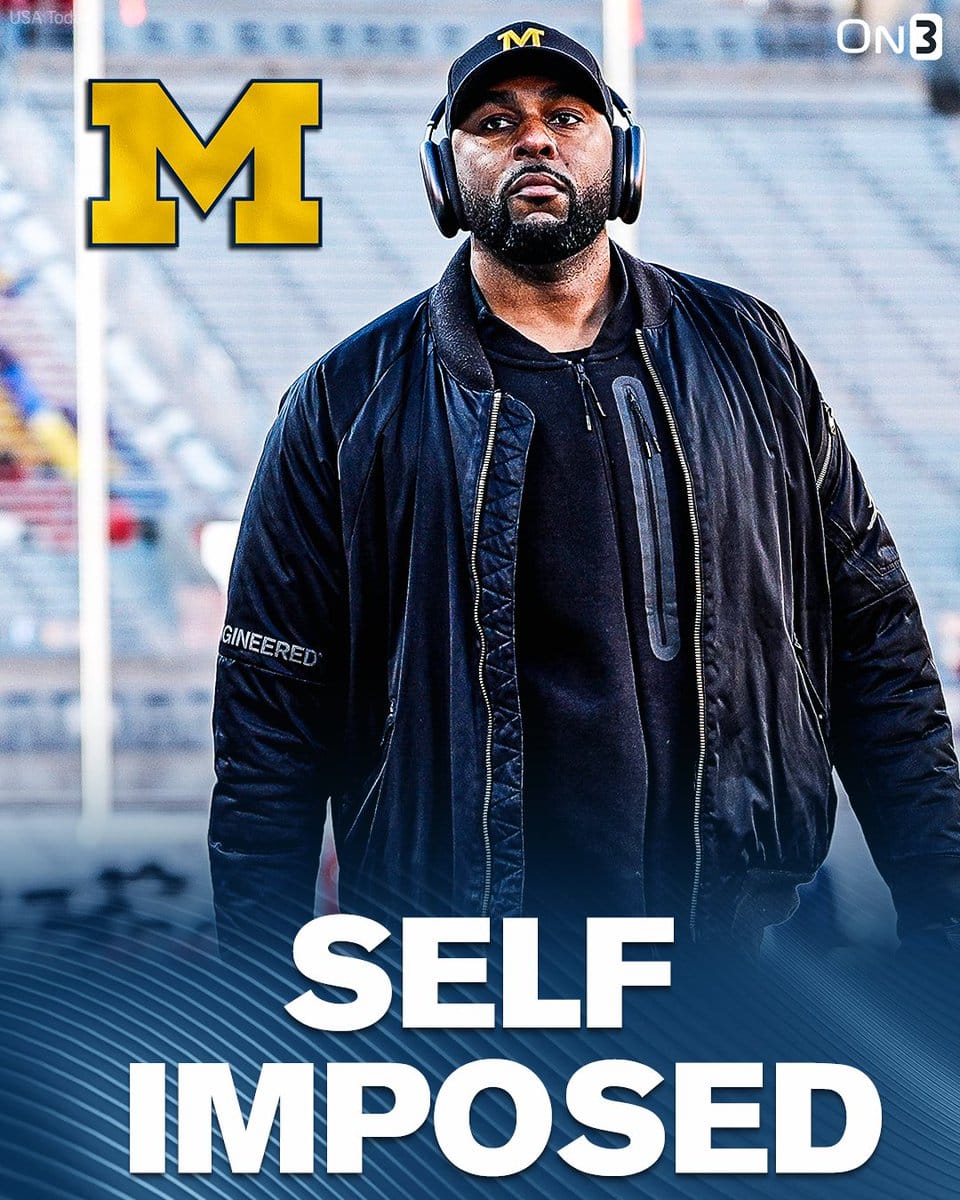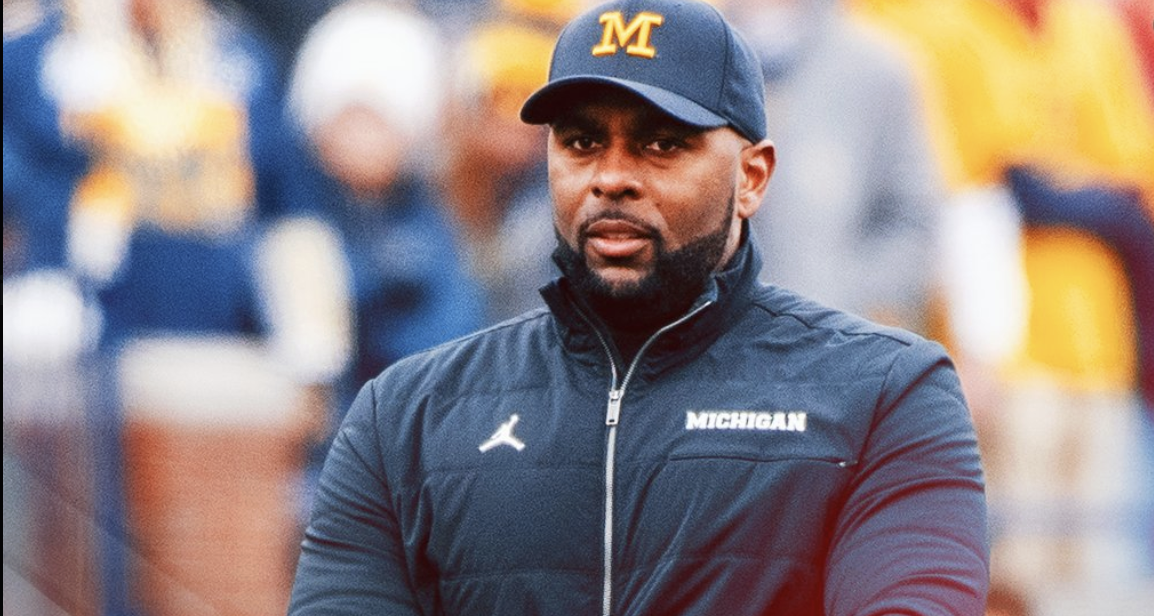The Context: Sherrone Moore and the Advanced Scouting Case

Sherrone Moore, named Michigan’s 21st head coach in January 2024 following Jim Harbaugh’s departure to the NFL, is no stranger to the pressures of leading one of college football’s most storied programs. A former offensive lineman at Oklahoma and a rising star in coaching, Moore earned praise for his interim leadership during Michigan’s 2023 national championship season, guiding the Wolverines to key victories while Harbaugh served suspensions. However, his tenure has been shadowed by NCAA investigations, particularly the advanced scouting case that has now led to his 2025 suspension.The advanced scouting case centers on allegations of impermissible off-campus scouting, primarily orchestrated by former Michigan staffer Connor Stalions between 2021 and 2023. According to a draft NCAA Notice of Allegations (NOA) obtained by ESPN in August 2024, Stalions scouted at least 13 future Michigan opponents on 58 occasions, violating NCAA Bylaw 11.6.1, which prohibits in-person scouting of future opponents. The scandal gained notoriety when evidence emerged that Stalions, disguised in Central Michigan coaching gear, appeared on the sidelines during Central Michigan’s 2023 season opener against Michigan State, an act the NCAA deemed a serious threat to the integrity of college athletics.Moore’s involvement, while less direct, stems from his alleged deletion of 52 text messages with Stalions in October 2023, coinciding with media reports exposing the scouting scheme. The NCAA recovered these messages via device imaging, and Moore later provided them to investigators, but the act was classified as a Level 2 violation, potentially warranting a show-cause penalty or suspension. Moore’s status as a “repeat violator”—due to a prior one-game suspension in 2023 for recruiting violations during the COVID-19 dead period—has intensified scrutiny.Michigan’s decision to impose a two-game suspension for 2025 appears to be a preemptive move to mitigate harsher NCAA sanctions, a strategy the program employed in 2023 when it self-imposed suspensions for Harbaugh and Moore. However, the choice of games—Central Michigan and Nebraska, but not Oklahoma—has raised eyebrows, prompting questions about whether Michigan is gaming the system to preserve Moore’s presence for a marquee matchup.
The Suspension: Strategic Game Selection
Michigan’s announcement that Moore will miss the 2025 games against Central Michigan and Nebraska, but be available for Oklahoma, is a calculated decision that reflects both strategic and symbolic considerations. Let’s break down the games and their significance:
- Central Michigan (Week 1): The season opener against Central Michigan, a Mid-American Conference (MAC) team, is widely viewed as a winnable game for Michigan, a perennial Big Ten powerhouse. Central Michigan’s connection to the scouting case—via Stalions’ sideline appearance in 2023—adds a layer of irony to Moore’s absence. By suspending Moore for this game, Michigan may be signaling accountability to the NCAA while minimizing competitive risk, as the Wolverines are likely to dominate even without their head coach.
- Nebraska (Week 3): The game against Nebraska, another Big Ten opponent, is less predictable but still within Michigan’s competitive range. Nebraska has shown improvement under coach Matt Rhule, but Michigan’s depth and talent likely give them an edge. Suspending Moore for this game allows Michigan to absorb a potentially tougher penalty while preserving Moore for later, more critical contests. The choice of Nebraska over Oklahoma suggests Michigan prioritizes Moore’s presence in high-profile, emotionally charged games.
- Oklahoma (Week 4): The decision to ensure Moore coaches against Oklahoma, his alma mater, is the most telling aspect of this suspension. Oklahoma, a storied program entering the SEC in 2025, represents a significant challenge and a personal milestone for Moore, who played as an offensive lineman for the Sooners from 2006 to 2007. Moore’s comments on the On3 podcast with J.D. PicKell reflect his calm confidence about facing Oklahoma, a sentiment that resonates with Michigan fans who see his loyalty to the Wolverines as a point of pride. By allowing Moore to coach this game, Michigan maximizes its competitive and narrative advantage, leveraging Moore’s personal connection to rally the team and fanbase.
This selective suspension strategy mirrors Michigan’s approach in 2023, when Harbaugh and Moore served self-imposed penalties for early-season games against less formidable opponents like East Carolina and UNLV, ensuring their return for tougher matchups. The pattern suggests Michigan is adept at navigating NCAA scrutiny by offering penalties that appear significant but minimize long-term impact.

Ethical Debates: Integrity and Self-Imposed Penalties
Michigan’s decision to self-select Moore’s suspension games has ignited a firestorm of debate about the ethics of self-imposed penalties in college football. Critics argue that allowing programs to choose their punishments undermines the NCAA’s authority and raises questions about fairness and integrity. Key points of contention include:
- Selective Accountability: By suspending Moore for games against Central Michigan and Nebraska, Michigan avoids penalizing him for a high-stakes game against Oklahoma or later Big Ten rivals like Ohio State or Michigan State. Critics, including USA Today’s Matt Hayes, have called Michigan’s approach “embarrassing” and “childish,” arguing that it prioritizes competitive advantage over genuine accountability. Hayes’ critique, published in January 2025, highlights a broader sentiment that Michigan’s response to the scouting case reflects a “legal pretzel” designed to deflect blame rather than address systemic issues.
- Repeat Violations: Moore’s designation as a potential “repeat violator” by the NCAA—stemming from his 2023 recruiting violation—fuels perceptions of a program with recurring compliance issues. Posts on X, such as those from @dandakich and @tSilverBulletin, reflect fan and analyst frustration, with some labeling Moore a “cheat” and questioning the integrity of Michigan’s football program. While these sentiments are not conclusive evidence, they underscore the public’s skepticism about Michigan’s handling of NCAA violations.
- NCAA’s Role: The NCAA’s slow resolution of the scouting case—still unresolved as of May 2025—has allowed Michigan to take the lead in shaping its penalties. The leaked draft NOA, reported by ESPN in August 2024, suggests Moore could face a show-cause penalty or suspension, but the lack of a final ruling has given Michigan room to maneuver. Critics argue that the NCAA’s delay enables programs like Michigan to exploit loopholes, while supporters contend that self-imposed penalties demonstrate cooperation and proactive governance.
- Program Integrity: The scouting case, combined with prior recruiting violations, has tarnished Michigan’s reputation as a “gold standard” in college athletics. The NCAA’s draft NOA accuses Michigan of a “pattern of noncompliance” and institutional efforts to hinder the investigation, charges that cast a shadow over the program’s 2023 national championship. For some, Moore’s suspension is a necessary step toward restoring credibility, but others see it as a superficial gesture that fails to address deeper cultural issues within the program.
Supporters of Michigan’s strategy argue that self-imposed penalties are a standard practice in college athletics, allowing programs to demonstrate accountability while maintaining competitive stability. Kansas, for example, self-imposed a four-game suspension for coach Bill Self in 2022 amid an NCAA investigation, a move that helped mitigate harsher sanctions. Michigan’s approach aligns with this precedent, balancing punishment with pragmatism.
The Advanced Scouting Case: What We Know
While the specifics of the 2025 advanced scouting case remain partially under wraps, the NCAA’s draft NOA provides critical insights into its scope and implications. Key details include:
- Connor Stalions’ Role: Stalions, a former low-level recruiting staffer, orchestrated an extensive off-campus scouting operation, purchasing tickets to over 30 games and directing a network to video opponents’ sidelines. His actions, including appearing disguised on Central Michigan’s sideline, violated NCAA rules and drew widespread condemnation. Stalions resigned in November 2023 and has since shared his perspective in a Netflix documentary, Untold, released in August 2024.
- Moore’s Involvement: Moore’s deletion of 52 text messages with Stalions is the primary basis for his Level 2 violation. The NCAA recovered these messages, which reportedly included discussions related to sign-stealing but not the illegal in-person scouting scheme. Michigan’s 137-page response to the NCAA, obtained by Yahoo Sports in January 2025, defends Moore, arguing that the texts were not directly tied to the core allegations. However, the timing of the deletion has fueled speculation about Moore’s knowledge of Stalions’ activities.
- Program-Wide Implications: The NCAA’s draft NOA accuses seven Michigan staffers, including former coaches Jim Harbaugh, Chris Partridge, and Denard Robinson, of Level 1 violations, the most serious category. The university itself faces a Level 1 charge for a “pattern of noncompliance” and obstructing the investigation. While no evidence directly links Moore or Harbaugh to Stalions’ scouting scheme, the NCAA faults them for failing to address “red flags.”
- Ongoing Investigation: As of May 2025, the NCAA has not issued a final NOA, leaving the case unresolved. Michigan’s cooperation, including Moore’s provision of recovered texts, may soften potential penalties, but the program could still face fines, scholarship reductions, or vacated records. The uncertainty has kept the scandal in the headlines, with Moore’s suspension serving as a temporary resolution.
The case’s complexity—combined with its high-profile nature—has made it a lightning rod for debates about fairness, competitive advantage, and the evolving role of technology in college football.
Strategic Implications for Michigan’s 2025 Season
Moore’s suspension, while limited to two games, carries significant implications for Michigan’s 2025 season, both on and off the field:
- On-Field Impact: Michigan’s depth and coaching staff should mitigate the impact of Moore’s absence against Central Michigan and Nebraska. Defensive coordinator Jesse Minter or another assistant, such as running backs coach Mike Hart, is likely to serve as interim head coach, as they did in 2023. However, the Nebraska game poses a greater challenge, and any missteps could affect Michigan’s early-season momentum. The decision to preserve Moore for Oklahoma suggests confidence in his ability to lead against a top-tier opponent, potentially boosting team morale and fan support.
- Recruiting and Morale: Moore’s leadership has been a stabilizing force for Michigan’s recruiting, with the 2025 class ranked 13th nationally by 247Sports. His suspension could raise concerns among recruits, particularly if the NCAA imposes further sanctions. However, Moore’s approachable demeanor and track record—highlighted by his 2023 interim wins—may reassure players and families. His presence against Oklahoma could also serve as a recruiting showcase, demonstrating his commitment to the program.
- Fan and Media Perception: Michigan fans have largely rallied behind Moore, as seen in posts praising his response to facing Oklahoma. However, the broader college football community remains divided, with critics like @intrinsicvalyou on X claiming “Sherrone Moore knew” about the scouting scheme. The suspension’s strategic nature may deepen skepticism among rival fans, particularly from Ohio State and Michigan State, who view Michigan’s penalties as insufficient.
- Long-Term Outlook: The suspension positions Michigan to navigate the NCAA investigation with minimal disruption, but the final NOA could alter the program’s trajectory. If Moore faces a show-cause penalty, his ability to recruit or coach could be restricted, impacting Michigan’s competitiveness. Conversely, a favorable resolution could solidify Moore’s standing as a capable successor to Harbaugh, paving the way for sustained success.
Broader Context: Self-Imposed Penalties in College Football
Michigan’s approach to Moore’s suspension reflects a broader trend in college athletics, where programs increasingly use self-imposed penalties to preempt NCAA sanctions. This strategy, while controversial, has become a standard tool for managing compliance issues:
- Precedents: Kansas’ 2022 suspension of Bill Self and assistant Kurtis Townsend, mentioned earlier, is a prime example. By imposing a four-game ban and recruiting restrictions, Kansas avoided more severe penalties, allowing Self to continue coaching without a show-cause order. Similarly, Michigan’s 2023 suspensions of Harbaugh and Moore for recruiting violations helped settle that case with three years of probation.
- Advantages: Self-imposed penalties signal cooperation with the NCAA, potentially reducing the severity of sanctions. They also allow programs to control the narrative, framing penalties as proactive rather than punitive. Michigan’s choice of early-season games minimizes competitive harm, preserving Moore for critical matchups.
- Criticisms: The practice raises ethical concerns, as programs can tailor penalties to avoid significant consequences. The NCAA’s inconsistent enforcement—evidenced by the delayed resolution of Michigan’s case—exacerbates perceptions of unfairness. Critics argue that self-imposed penalties undermine the principle of equal accountability, favoring powerful programs like Michigan.
- Future Implications: As college athletics evolves, with Name, Image, and Likeness (NIL) deals and conference realignments reshaping the landscape, the NCAA’s authority is increasingly questioned. Michigan’s case could prompt calls for clearer guidelines on self-imposed penalties, ensuring they align with the spirit of fair play.
Conclusion: A Delicate Balance of Strategy and Ethics
Michigan’s self-imposed two-game suspension of Sherrone Moore for the 2025 season is a calculated move that balances accountability with competitive pragmatism. By sidelining Moore for Central Michigan and Nebraska, but preserving him for Oklahoma, the Wolverines aim to navigate the advanced scouting case with minimal disruption while showcasing their coach’s leadership in a marquee matchup. Yet, the decision has fueled debates about the ethics of self-selecting penalties, with critics questioning whether Michigan’s actions reflect genuine integrity or strategic gamesmanship.The advanced scouting case, with its roots in Connor Stalions’ illicit activities, continues to cast a shadow over Michigan’s program, raising questions about compliance, oversight, and the pursuit of competitive advantage. Moore’s Level 2 violation, while less severe than the Level 1 charges facing others, underscores the challenges of maintaining ethical standards in a high-stakes environment. As the NCAA investigation nears its conclusion, Michigan’s handling of this crisis will shape perceptions of its football program and Moore’s legacy as a first-time head coach.For now, the focus shifts to the 2025 season, where Moore’s absence in Weeks 1 and 3 will test Michigan’s depth, and his return against Oklahoma will offer a chance to redefine the narrative. Whether viewed as a savvy strategy or an ethical misstep, Michigan’s suspension of Sherrone Moore is a pivotal moment in the Wolverines’ ongoing saga, one that resonates far beyond the gridiron.


